Public Health Assignment: Immunization Challenges and IPN in Australia
VerifiedAdded on 2023/01/20
|5
|940
|25
Homework Assignment
AI Summary
This assignment addresses public health challenges associated with immunization in Australia, particularly focusing on the Haemophilus influenzae type b (Hib) vaccination and the role of Immunization Program Nurses (IPN). The primary issue highlighted is the lack of proper follow-up for booster dosages of the Hib vaccine, which leads to incomplete immunization and potential disease spread. The assignment discusses the Series of National Guidelines (SoNGs) developed in consultation with the Communicable Diseases Network Australia (CDNA) and the Australian Health Protection Principal Committee (AHPPC), including the introduction of a monovalent Hib dose for 18-year-olds to ensure comprehensive immunization. The document also provides an overview of the Immunization Program Nurse (IPN) role according to the Health Drugs and Poisons Regulation 1996, detailing their authorization, responsibilities, and the vaccines and restricted drugs they are authorized to administer. The IPN's duties include following the National Immunisation Program schedule, conducting clinical assessments, obtaining informed consent, and documenting any adverse side effects. The assignment emphasizes the importance of communication strategies for early disease reporting and immunization awareness. References include key governmental and health organization documents.
1 out of 5
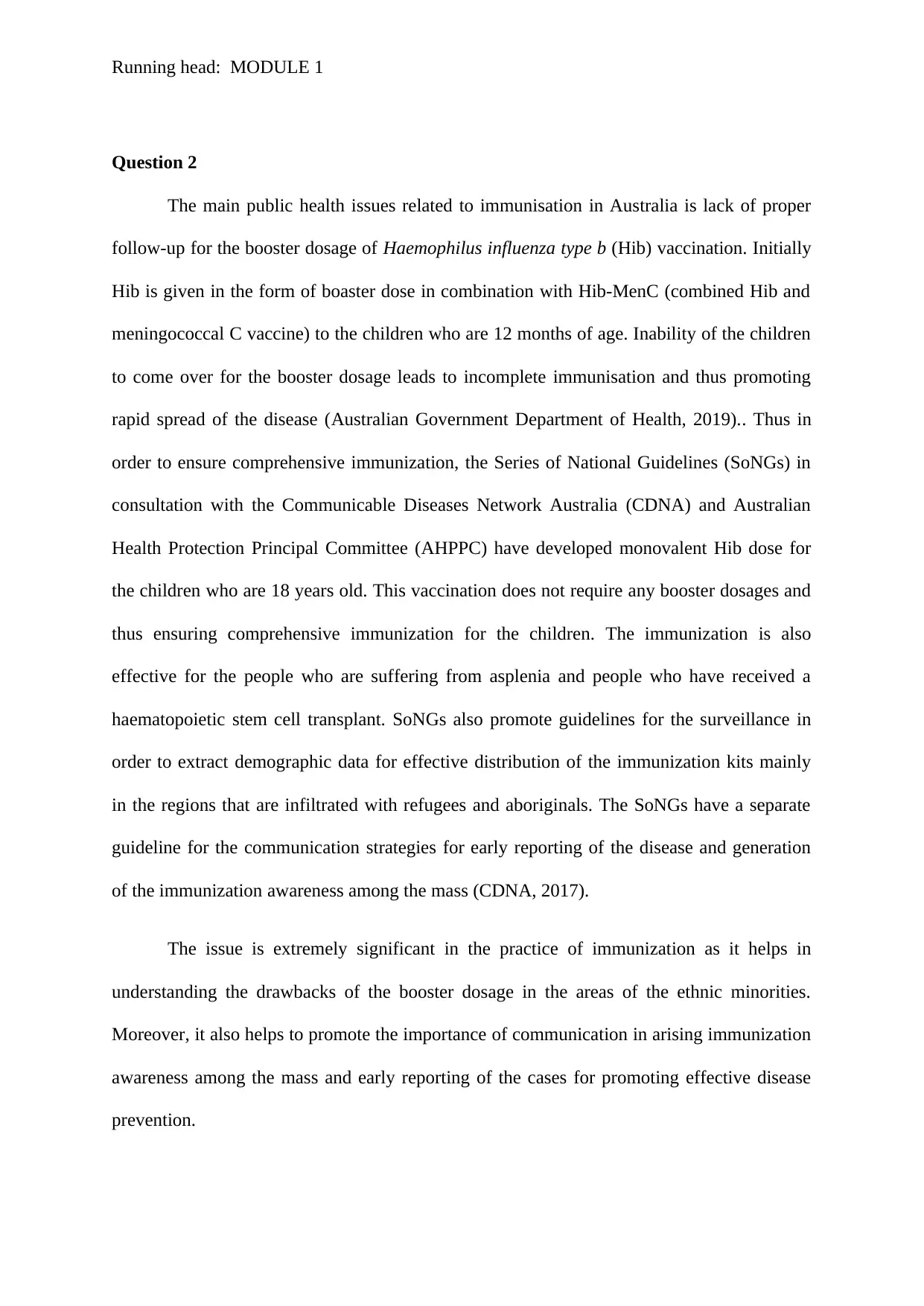
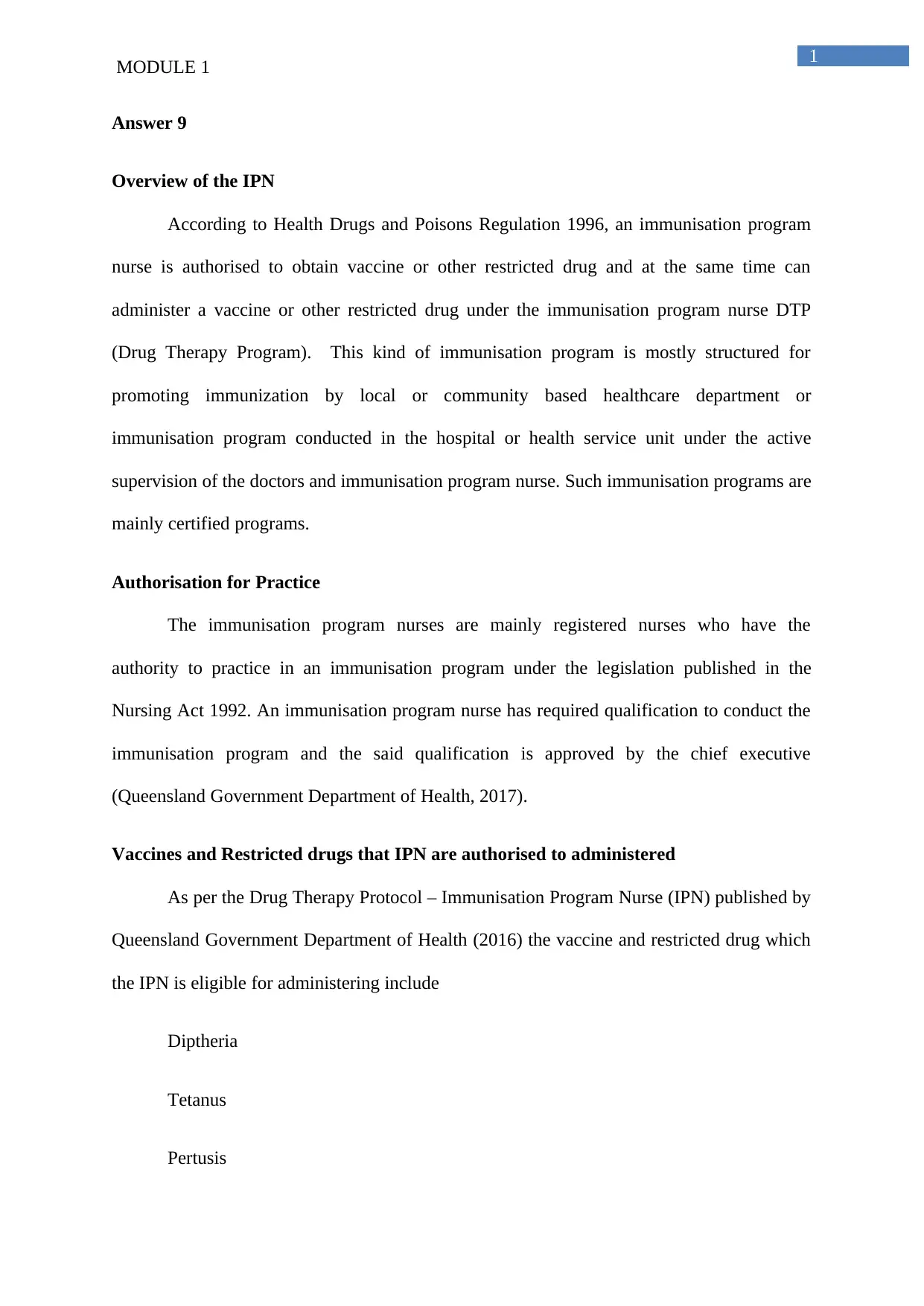
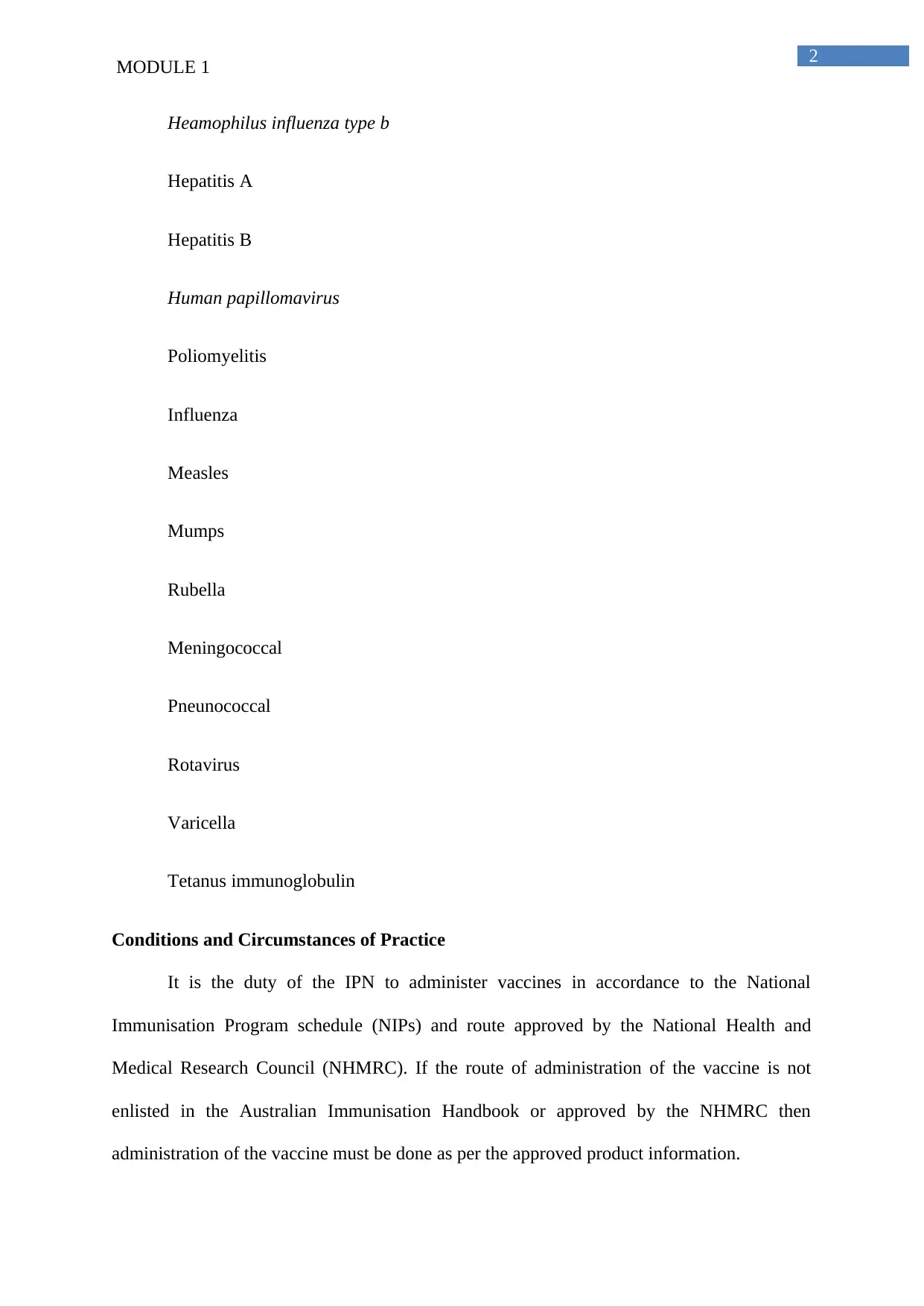

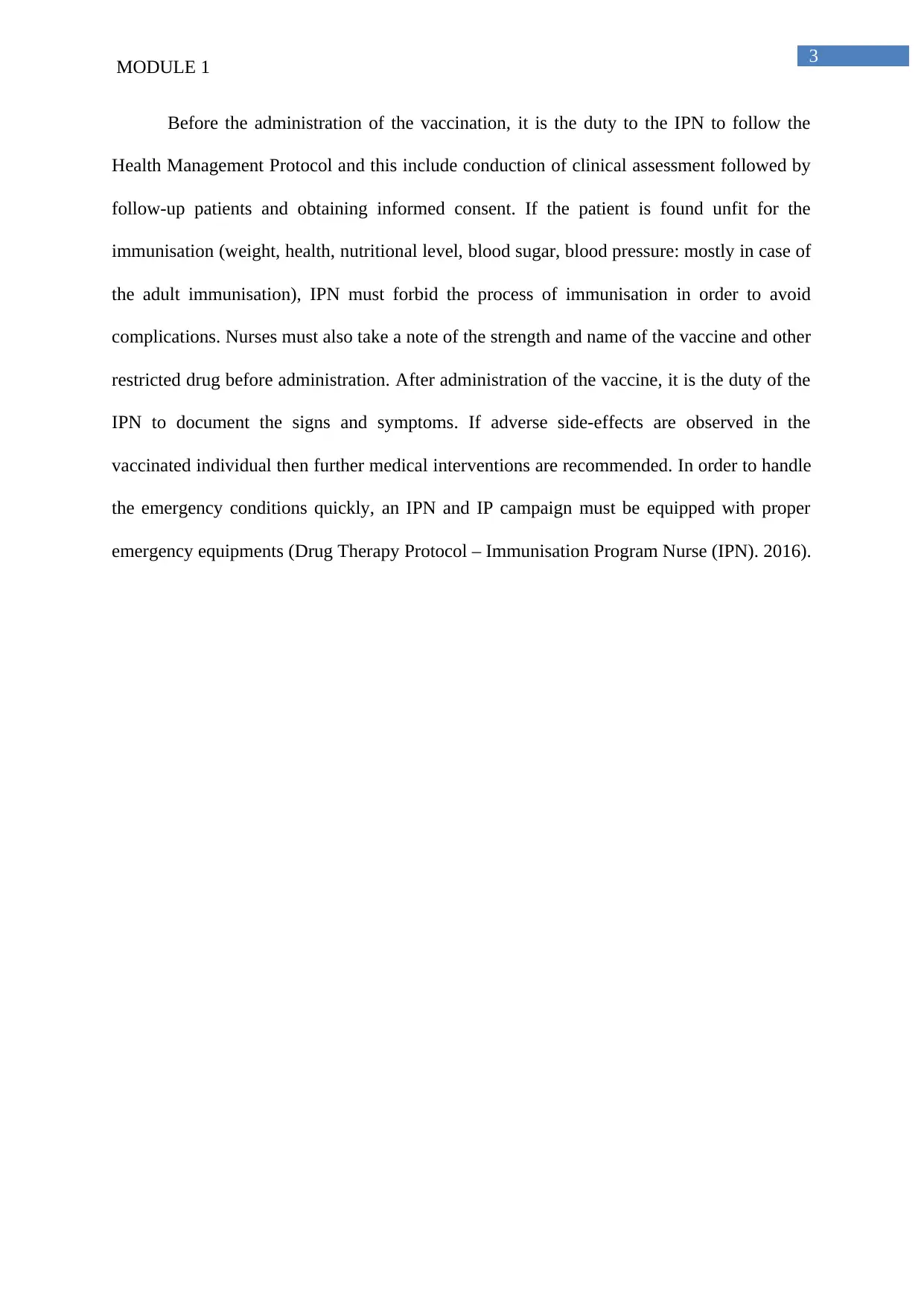
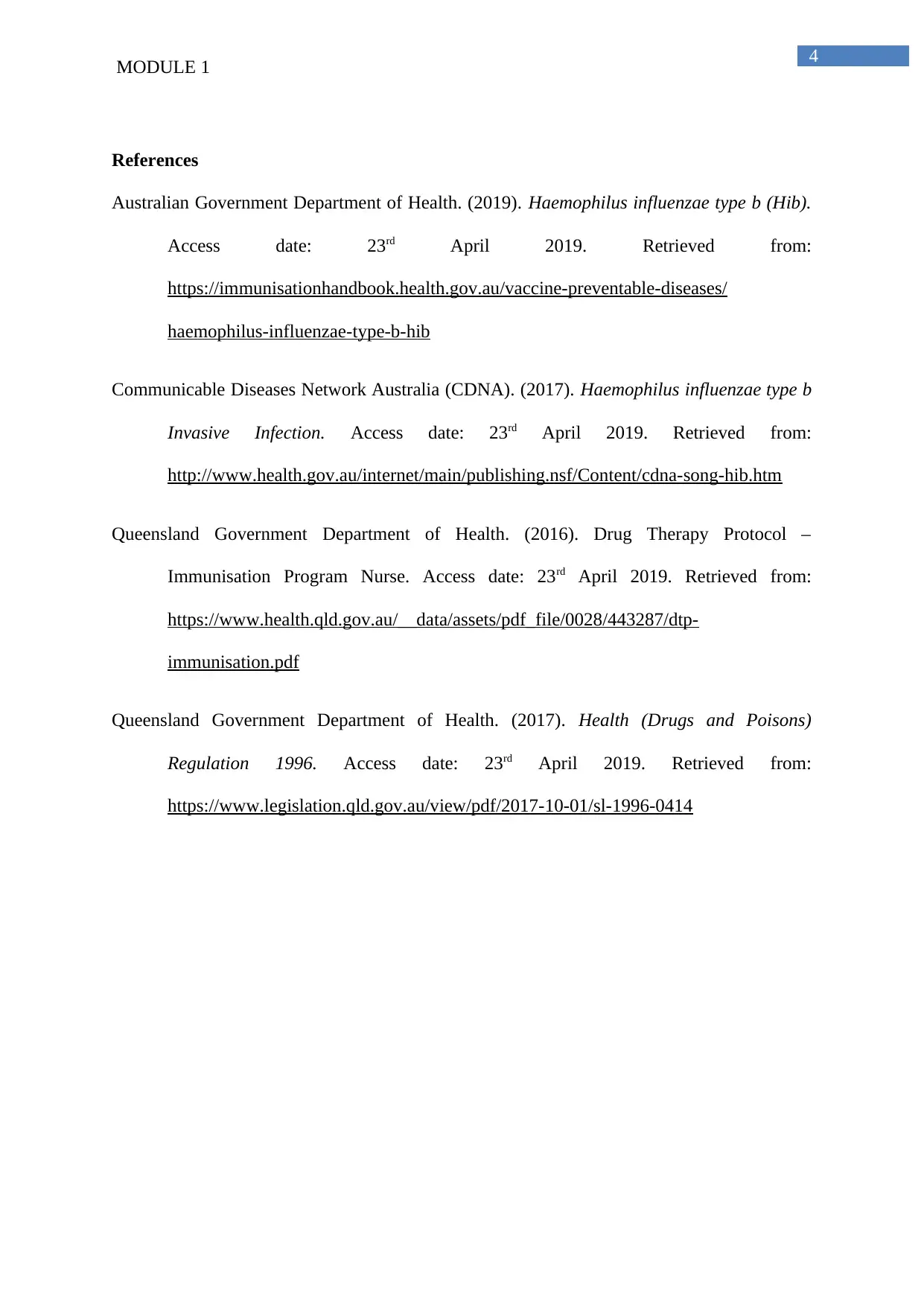



![[object Object]](/_next/static/media/star-bottom.7253800d.svg)